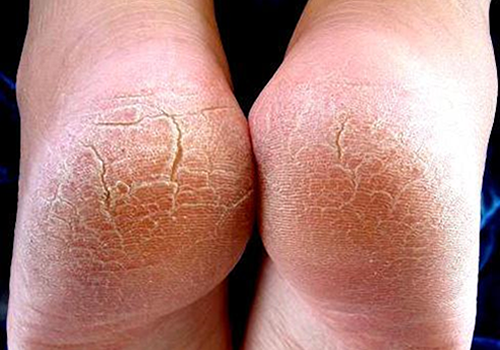Diabetes can cause dizziness and balance problems due to its effect on various systems in the body. Complications with vision, circulation, and sensation (peripheral neuropathy) are common especially if the diabetes is poorly controlled. Low blood pressure and poorly managed blood sugar can also contribute to dizziness and balance problems. Both high or low blood sugar can cause blurred vision, confusion, dizziness, weakness, and lack of motor coordination increasing the risk for falls.

Diabetics are prone to having foot problems due to a condition called peripheral neuropathy (changes in sensation due to nerve damage) which can cause weakness, numbness, and pain in hands, feet, and other parts of the body. Peripheral neuropathy causes loss of feeling in your feet, taking away the ability to feel pain and discomfort. This is particularly dangerous because diabetics may not detect or sense that something is creating irritation or is wrong because they cannot feel their feet. This is why small problems can escalate to become serious ones very quickly. Once a wound has occurred, poor circulation in the lower leg and feet reduces the ability to heal increasing the risk for small cuts to become infected.
Potential diabetes-related foot and leg problems that can occur:
- Infections and ulcers (sores) that do not heal. An ulcer is a sore in the skin that may go all the way to the bone. Because of poor circulation and neuropathy in the feet, cuts or blisters can easily turn into ulcers that become infected and will not heal. This is a common yet serious complication of diabetes that can lead to a loss of your foot, your leg, or your life.
- Corns and calluses. When neuropathy is present, you cannot tell if your shoes are causing pressure and producing corns or calluses. Corns and calluses must be properly treated or they can develop into ulcers.
- Dry, cracked skin. Poor circulation and neuropathy can make your skin dry. This may seem harmless, but dry skin creates an opening or breaks in the skin that can allow bacteria to get in and cause a sore that can lead to infection.
- Nail disorders. Ingrown toenails (which curve into the skin on the sides of the nail) and fungal infections can go unnoticed because of loss of feeling. If they are not properly treated, they can lead to infection.
- Hammertoes and bunions. Nerve damage affecting muscles can cause muscle weakness and loss of tone in the feet, resulting in hammertoes and bunions. If left untreated, these deformities can cause ulcers due to friction inside of the shoe.
- Charcot's foot. This is a complex foot deformity. It develops as a result of a loss of sensation and an undetected broken bone that leads to the destruction of the soft tissue of the foot. Because of neuropathy, the pain of the fracture goes unnoticed and the patient continues to walk on the broken bone, making it worse. This disabling complication is so severe that surgery, and occasionally amputation, may become necessary.
- Poor blood flow. In diabetes, the blood vessels below the knee often become narrow and restrict blood flow. This prevents wounds from healing and may cause tissue death (necrosis).

Sole Remedy is an accredited Pedorthic facility and provider of ankle-foot orthoses, foot orthotics and properly fitting footwear for patients. We can help you with diabetic footwear and protect your feet from ulceration. Have difficulty with walking or balance? We can help! Call today for an appointment!
Sole Remedy specializes in gait analysis, foot type assessment, musculoskeletal injury management and fall prevention.
Phone: 508-295-8800 or 855-FOOT RX 9 to schedule an appointment today!
